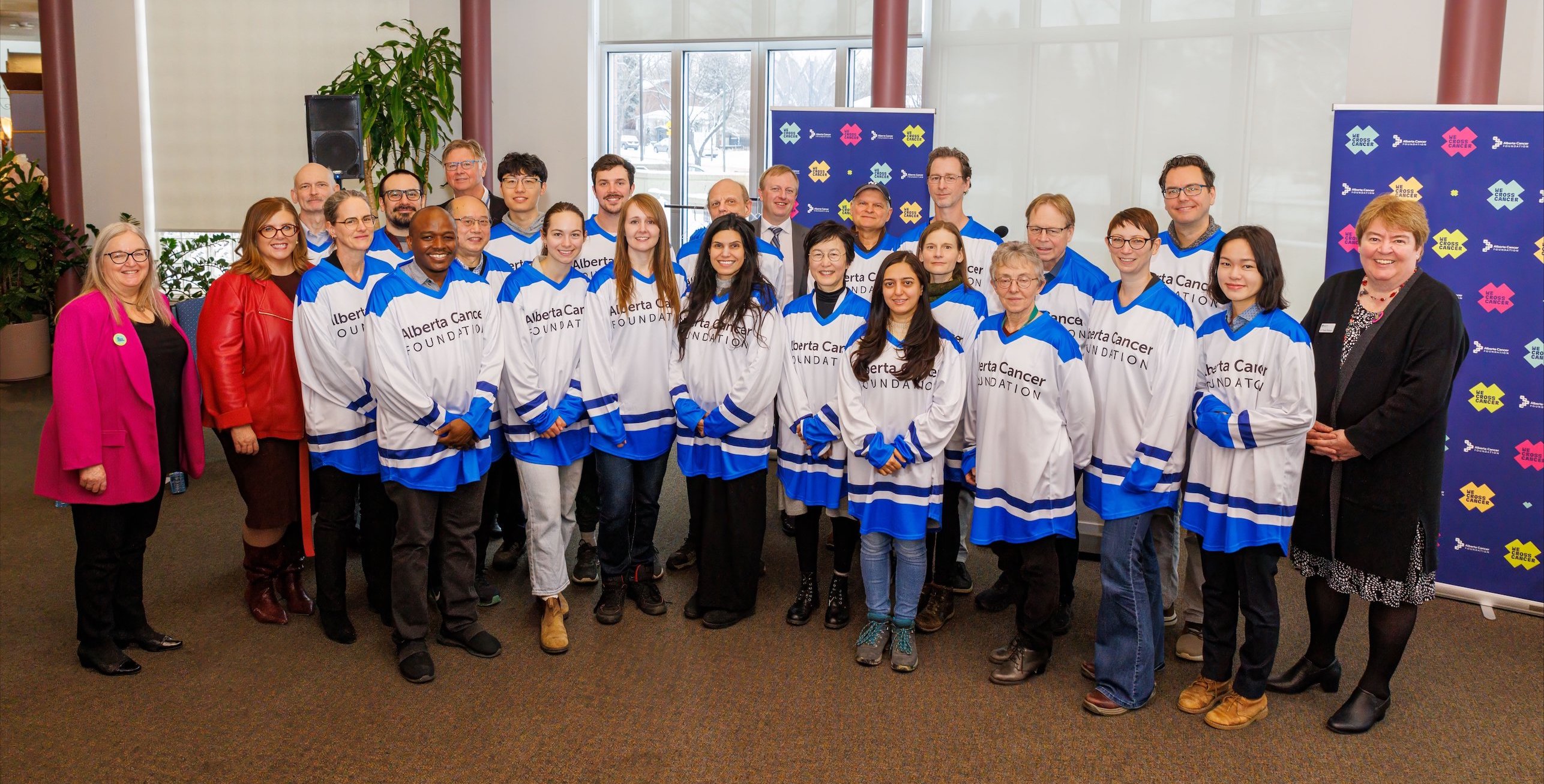Health And Wellness
UAlberta
Research
Changing the Game to Fight Cancer
25 September 2024

What would you do to fight cancer and improve patient outcomes? When the Edmonton cancer community was asked this question, the response was revealing. They wanted to go beyond traditional boundaries to address grand challenges in cancer that could be translated into better patient care.
Quite simply, they wanted to change the game.
Thanks to the generosity of the Edmonton community, $5 million was raised by the Alberta Cancer Foundation to support cancer research in Edmonton. Informed by extensive consultation with the cancer community, a competition was designed by a committee jointly chaired by Hanne Ostergaard, director of the Cancer Research Institute of Northern Alberta, and Paula Robson, scientific director of Cancer Research & Analytics (Cancer Care Alberta).
When launched in 2023, there was no better name for the competition than “Game Changer.”
As expected, the competition’s request for proposals was well answered with 22 applications. All of them featured innovative ideas that would answer big questions in cancer research. CRINA and CR&A managed the competition with a rigorous review process that saw each proposal reviewed by both members of the scientific community from across Canada and people with lived experiences. In February of this year, four researchers at the University of Alberta, who are also CRINA members, were chosen as recipients of the Game Changer Fund.
Roseline Godbout will identify new markers of prostate cancer to detect and predict its progress, allowing for improved treatments.
Kristi Baker will develop a new imaging platform to learn how the immune system negotiates with cancer and how resistance to our body’s defences occurs over time.
Ing Swie Goping will develop a platform to understand how individuals uniquely respond to breast cancer therapies.
Order of Canada recipient Vickie Baracos, who has contributed extensive work on cachexia — the wasting syndrome some cancer patients experience that can lead to severe weight loss and frailty — will identify ways to improve patients’ fitness in tolerating and benefiting from cancer therapy.
Unlike traditionally funded research, which tends to focus on smaller teams and siloed research, one of the requirements for the Game Changer Fund was collaboration. Each researcher compiled teams consisting of discovery researchers and clinicians, who will collaborate to strengthen the bridge between the laboratory bench and patient care. For Ostergaard, this is the best way to raise the bar for cancer research worldwide.
“These four research leaders brought together excellent teams of cancer researchers with unique expertise to tackle important questions related to cancer progression that once answered will move the needle for improved patient care,” she says. “The peer reviewers felt that these leaders proposed research questions that were highly relevant and assembled the appropriate teams to address their cancer related questions.”
In addition, the Game Changer Fund will provide new and innovative tools to the Edmonton cancer research community to assist others in their research. Platforms will be established that will be readily available to researchers, which may spark more game changing research.